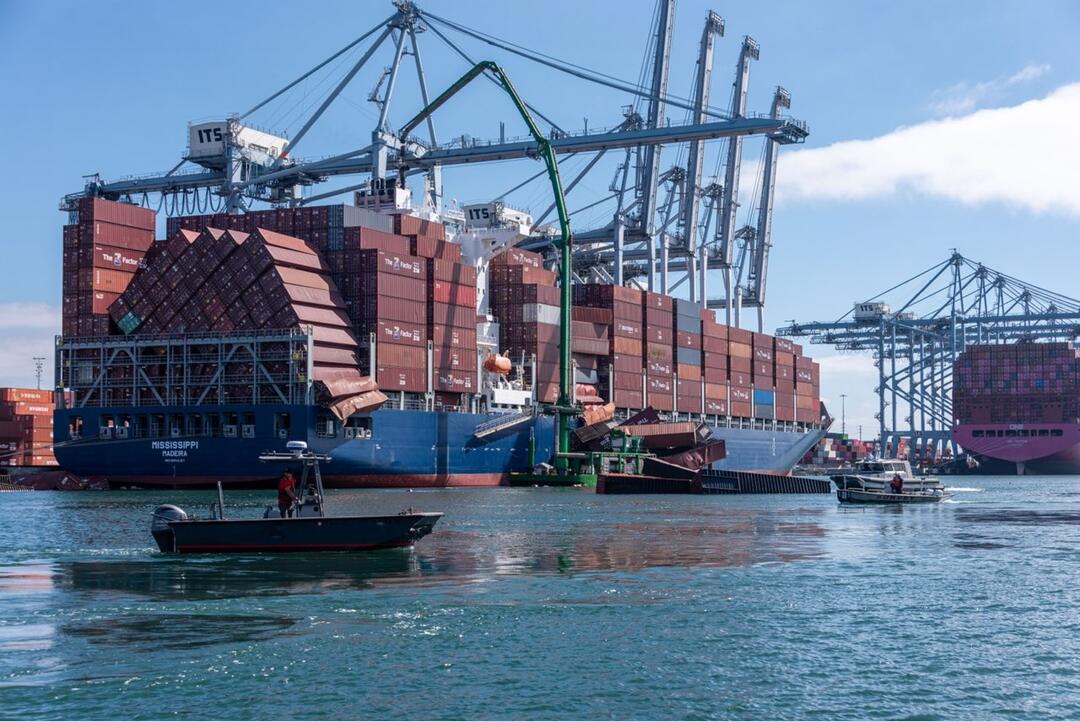The Nigerian maritime sector has over the years provided opportunities for a massive return on investment following the increase in the volume of international trade experienced across the ports in Nigeria. With these ever-increasing commercial activities between Nigeria and other countries of the world, the need to invest in the Nigerian maritime industry cannot be overemphasized.
- Regulatory Framework for a shipping company in Nigeria
- Requirements for incorporating a shipping company in Nigeria
- Procedures
- 1. Registration with the Federal Inland Revenue Service (FIRS)
- 2. Registration with the Nigerian Maritime Administration and Safety Agency (NIMASA)
- Documents required to register a shipping company with NIMASA:
- The procedure for filing an application to NIMASA is as follows:
- Duration for license registration
- 3. Registration with the Nigeria Port Authority (NPA)
- 4. Registration of Ship/Vessel
- National carrier status
The term “Maritime” may be defined as anything involving the sea, including the navigation of commercial transactions on the sea or via any means requiring shipping transportation.
Given the foregoing, the Nigerian Maritime Industry can be described as an all-encompassing industry, which embraces all maritime-related business activities that take place within the country’s maritime environment. It ranges from offshore economic activities such as fishing, salvage, towage, and underwater resources to on-shore economic activities such as port activities, maritime transport (shipping), ship construction, repairs, and maintenance activities as well as the enterprises involved in carrying out these activities
One of the most strategic ways of investing in the maritime industry is through freight forwarding or becoming a registered shipping company/agent. In 2015, the Nigerian maritime trade economy was estimated to account for more than 50% of the vehicular means of international trade in Nigeria, leading to a major transition of the country’s international trade market, from national to international recognition.
Undeniably, the Maritime Industry is one of the most lucrative industries in the world. It plays a major role in the economic development of any country by largely setting the pace of growth experienced in other industries. Hence, the need to explore and exploit the industry!
If you seek to set up a shipping company in Nigeria, this article will guide you on the procedures and requirements needed to make that happen.
Regulatory Framework for a shipping company in Nigeria
Before you get started, there is the need to acquaint yourself with the regulatory framework guiding a shipping company in Nigeria. The principal body of substantive shipping laws is contained in the following legislations:
i. Merchant Shipping Act 2007 (The MSA);
ii. The Nigerian Maritime Administration and Safety Agency Act 2007 (The NIMASA Act);
iii. The Admiralty Jurisdiction Act 2004;
iv. The Nigerian Port Authority Act 2004;
v. The Coastal and Inland Shipping (Cabotage) Act No. 5, 2003 (The Cabotage Act);
vi. The Finance Act 2021.
There are other regulations applicable on the safety of ships, navigation, pollution, and crew matters that a shipping company must observe.
Note: The Nigerian maritime sector is regulated by the Nigerian Maritime Administration and Safety Agency (NIMASA)
The very first step to take will always be to register the business with the Corporate Affairs Commission as provided by the Companies and Allied Matters Act (CAMA) 2020 as a company limited by shares. The minimum mandatory share capital for a shipping company or private limited companies in Nigeria ₦100,000.00 (Hundred Thousand Naira), while that of public limited liability companies is ₦2,000,000.00 (Two Million Naira) share capital. However, the minimum share capital of a shipping company in Nigeria is ₦25,000,000.00 (Twenty-Five Million Naira).
Please note that for a shipping company to enjoy national carrier status, its share capital must be ₦100,000,000.00 (Hundred Million) and above.
Requirements for incorporating a shipping company in Nigeria
Below are the requirements for incorporation of a shipping company in Nigeria:
- Two proposed names for the company: The business names of your will be submitted to the CAC for ‘name search, screening, and approval’. Upon approval, the promoters may thereafter proceed to register the company with the approved name.
- Proposed registered address, email address and phone number of the company.
- Details of the Shareholders, Director(s) and Company Secretary to include their names, Contact/Home address, Email address, Phone number, Date of birth, Occupation, National Identification Number (NIN), and electronic signatures respectively. Please note that for foreigners, an international passport will be sufficient for means of identification.
- Object of the Company: The proposed company must be registered as a shipping company.
Procedures
Upon incorporation, there are four (4) post-incorporation registrations and approvals required for a shipping company to seamlessly operate in Nigeria.
1. Registration with the Federal Inland Revenue Service (FIRS)
For tax purposes and returns, every legitimate business in Nigeria is by law required to register with the Federal Inland Revenue Service (FIRS). Please note that a Tax Identification Number (TIN) is assigned to a company upon incorporation by the Corporate Affairs Commission. The TIN is a must-have to do legitimate business in Nigeria.
Requirements for the registration with the FIRS:
- Application letter on the company’s letterhead paper;
- The company’s certificate of incorporation and other incorporation documents;
- Particulars of the company directors, and
- Utility bill of the registered address of the company.
2. Registration with the Nigerian Maritime Administration and Safety Agency (NIMASA)
The Nigerian Maritime Administration and Safety Agency (NIMASA), formerly the National Maritime Authority (NMA) is responsible for regulations related to Nigerian shipping, maritime labor, and coastal waters. A company seeking to operate a shipping company in Nigeria must apply to NIMASA to obtain a license for its operation. The license is accompanied with the necessary documents as provided by the NIMASA Act. Please note that a physical inspection of your company will be carried out by NIMASA.
Documents required to register a shipping company with NIMASA:
- Completed NIMASA form B1;
- Receipt of payment of registration fees;
- Memorandum and Article of Association showing that the company has been registered with ₦25,000,000 share capital (Note: the main object clause must be shipping related);
- Certificate of increase in share capital, this is relevant if your company had increased its share capital post-incorporation displaying allotment of shares;
- Documents displaying allotment of shares or post-incorporation changes in the records of the company;
- Documents displaying particulars of directors or any post-incorporation filings;
- Evidence that the company had filed for annual returns (this could be in form CAC 10 or a letter acknowledging filing of Annual Returns from Corporate Affairs Commission);
- Current tax clearance certificate;
- Original bank reference letter; and
- Audited account or financial statement of account (the applicant company will need a financial statement where it is less than 18 months old and audited account if your company is over 18 months old).
The procedure for filing an application to NIMASA is as follows:
- The shipping company or its authorized agent will submit the application to the General Manager of the Port Authority;
- The Applicant will receive a debit note and make a payment of ₦300,000.00 (Three Hundred Thousand Naira)
- Upon the confirmation of the payment, the Nigerian Port Authority will issue a receipt to the applicant
- The Nigerian Port Authority issues the original copy of the certificate of registration to the applicant.
Duration for license registration
The license for registration will be issued within 2 to 4 weeks from the date of registration provided that all the required documents are submitted and found satisfactory.
Moreso, it is worthy of note that a shipping company must be registered under the national carrier status in order to enjoy preferential rights and privileges accorded by the Nigerian Government.
3. Registration with the Nigeria Port Authority (NPA)
The following are the documents required to register a shipping company with the Nigerian Ports Authority:
- Completed NIMASA form B1;
- Current tax clearance certificate of company;
- Certified true copy of certificate of Incorporation;
- Certified true copy of memorandum and article of association of which the share capital must not be less than ₦25,000,000.00 (twenty-five million naira), and the object of the company must be shipping;
- Latest audit report;
- Evidence that company has filed its annual returns;
- Evidence of registration as a licensed custom agent;
- Joint venture agreement where applicable;
- Charter party agreement where applicable;
- Copy of current list of each owned vessel;
- A reference from the bank;
4. Registration of Ship/Vessel
The following documents are required for the registration of ship with NIMASA:
- A completed NIMASA application form;
- A completed NIMASA approval of name of ship form;
- Copy of Certificate of Incorporation;
- Evidence of registration as a shipping company with NIMASA;
- CTC of Memorandum and Article of Association;
- Company’s current tax clearance certificate;
- Company’s bank statement or reference letter;
- A declaration of NIMASA ownership form to be issued by the Ship Registry; and
- The applicant is to make an application for survey and issuance of Certificate of Tonnage measurement to facilitate the flag survey of the ship.
The applicant is also expected to provide details of his particulars when registering a ship.
These details should include the following:
- Full names, address,es and occupational operations of the applicant
- Evidence of ability to operate and maintain a ship
- The logbook of the ship will also be provided for inspection by the Registrar of Ships
- Evidence of sufficient financial resources for the operation and maintenance of the ship.
In addition, the following particulars of the ship must be provided for registration:
- The name of ship, time, place of purchase and Master of the ship;
- Particulars in respect of tonnage, build and description of the ship;
- Bill of sale or Builders Certificate, that is the evidence of title;
- Certificate of the approval plan issued by NIMASA for a newly built vessel in Nigeria alone;
- Callsign certificate ;
- Load line certificate;
- Condition survey report and tonnage measurement certificate as approved by the Minister;
- Certificate of carving and marking note of the ship. The ship for registration must be marked permanently and conspicuously to the satisfaction of the minister. Inspections will be carried out on ship markings at the cost to the ship’s owner
- Payment of registration fee
- Evidence of insurance coverage of the ship
National carrier status
The concept of a national carrier is provided for under sections 35-38 of the NIMASA Act, and had been predated by similar provisions in the now repealed National Shipping Policy Act of 1987. Section 35 of the NIMASA Act provides that the Minister may grant national carrier status to a shipping company if it satisfies the conditions set out in the Act. The status confers on the national carrier ‘exclusive right to carriage of export and import cargo belonging to the Federal, State and local governments, including Federal and State-owned companies and agencies’, by virtue of section 36(1).
In order for a shipping company to enjoy the national carrier status, the company must meet the following requirements:
- The company must be registered in Nigeria;
- The managing director of the company must be a Nigerian;
- It must be a fully owned Nigerian company or with Nigerian equity ownership of at least 60% of the shares;
- The company’s vessel must be registered with Nigerian vessel of ships
- It must own at least one ocean-going vessel of not less than 5000 net registered tonnages
- The terms and conditions of the seafarers engaged in the company must be in tandem with Nigerian laws and accepted international standards.
Required documents to file in support of the application to register as a national carrier
The following are the requisite documents to file in support of an application to register a shipping company as a national carrier:
- Completed NIMASA form B1;
- Current tax clearance certificate of company;
- Certified true copy of certificate of Incorporation;
- Certified true copy of memorandum and article of association of which the share capital must not be less than ₦100,000,000.00 (one hundred million naira), and the object of the company must be shipping;
- Latest audit report;
- Evidence that company has filed its annual returns;
- Evidence of registration as a licensed customs agent;
- Copy of current list of each owned vessel
- A reference from the bank
Interestingly, the Nigerian Maritime industry has developed through time, with the right investment plan, one would expect that the industry would be at the forefront of attracting potential investors, while increasing the Country’s revenue by significant numbers.
















